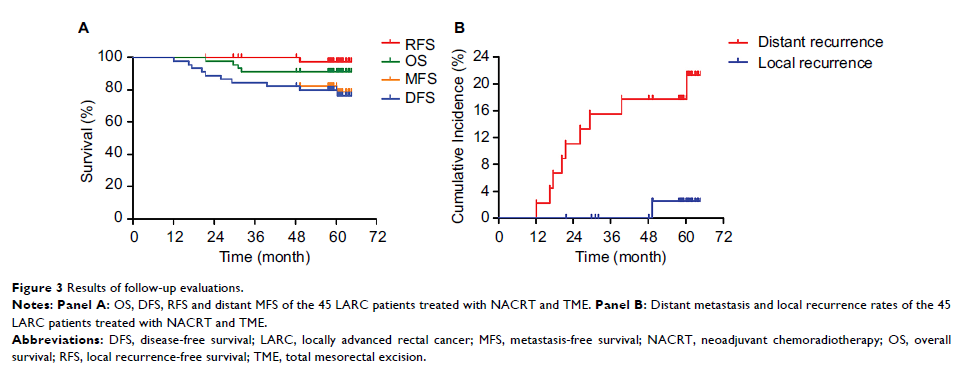108384
论文已发表
注册即可获取德孚的最新动态
IF 收录期刊
- 3.4 Breast Cancer (Dove Med Press)
- 3.2 Clin Epidemiol
- 2.6 Cancer Manag Res
- 2.9 Infect Drug Resist
- 3.7 Clin Interv Aging
- 5.1 Drug Des Dev Ther
- 3.1 Int J Chronic Obstr
- 6.6 Int J Nanomed
- 2.6 Int J Women's Health
- 2.9 Neuropsych Dis Treat
- 2.8 OncoTargets Ther
- 2.0 Patient Prefer Adher
- 2.2 Ther Clin Risk Manag
- 2.5 J Pain Res
- 3.0 Diabet Metab Synd Ob
- 3.2 Psychol Res Behav Ma
- 3.4 Nat Sci Sleep
- 1.8 Pharmgenomics Pers Med
- 2.0 Risk Manag Healthc Policy
- 4.1 J Inflamm Res
- 2.0 Int J Gen Med
- 3.4 J Hepatocell Carcinoma
- 3.0 J Asthma Allergy
- 2.2 Clin Cosmet Investig Dermatol
- 2.4 J Multidiscip Healthc

“夹心饼” 模式的新辅助治疗的高 pCR 率可转化为更好的长期生存优势: 第二阶段临床试验的 5 年结果
Authors Hu YH, Wei JW, Chang H, Xiao WW, Lin JZ, Cai MY, Cai PQ, Kong LH, Chen G, Pan ZZ, Zeng ZF, Ding PR, Gao YH
Received 18 March 2018
Accepted for publication 3 July 2018
Published 10 October 2018 Volume 2018:10 Pages 4363—4369
DOI https://doi.org/10.2147/CMAR.S168573
Checked for plagiarism Yes
Review by Single-blind
Peer reviewers approved by Dr Amy Norman
Peer reviewer comments 2
Editor who approved publication: Dr Luzhe Sun
Background: In a Phase II clinical trial, we reported the effectiveness and safety of a sandwich neoadjuvant treatment based on a modified oxaliplatin plus capecitabine (XELOX) regimen for locally advanced rectal cancer (LARC). The pathologic complete response (pCR) rate was 42.2%, and no patient presented Grade 4 acute toxicities. This study was performed to evaluate whether the high pCR rate could translate into an improved long-term survival benefit by analyzing the 5-year follow-up results of the trial.
Methods: Fifty-one patients with LARC were initially enrolled in the trial. Of these, 2 cases were eliminated due to distant metastasis before treatment. In addition, 4 cases were eliminated for refusing surgery after neoadjuvant chemoradiotherapy (NACRT). Finally, a total of 45 patients were treated with the sandwich NACRT plus total mesorectal excision. We followed up these patients and calculated their overall survival (OS) and disease-free survival (DFS) through a Kaplan–Meier approach. A log-rank test and multivariate survival analysis based on a Cox proportional hazard model were performed to explore the risk factors influencing distant metastasis.
Results: The median follow-up time was 60.8 months, and among the 45 patients analyzed, 1 (2.2%) patient suffered local recurrence, and 9 (20.0%) suffered distant metastasis. The 3-year OS and DFS were 95.6% and 84.4%, respectively. In addition, the 5-year OS and DFS were 91.1% and 80.0%, respectively. In the multivariate analysis, postsurgical pathological N stage and carbohydrate antigen 19–9 before treatment maintained statistical significance on distant metastasis.
Conclusions: The sandwich NACRT with XELOX regimen might reduce distant metastasis and improve the survival of LARC patients. However, long-term benefits should be verified through further Phase III clinical trials.
Keywords: rectal neoplasms, neoadjuvant chemoradiotherapy, locally advanced, neoadjuvant therapy, prognosis
